Suriname President Changdeli Kapersad Chandogi is a firsthand witness to the friendly exchanges between political parties in China and the Soviet Union. Years ago, his training experience in China opened a window for him to observe China’s experience in governing the country. “I was first exposed to the advanced concept of socialism with Chinese characteristics,” he recalled in an interview with Xinhua News Agency.
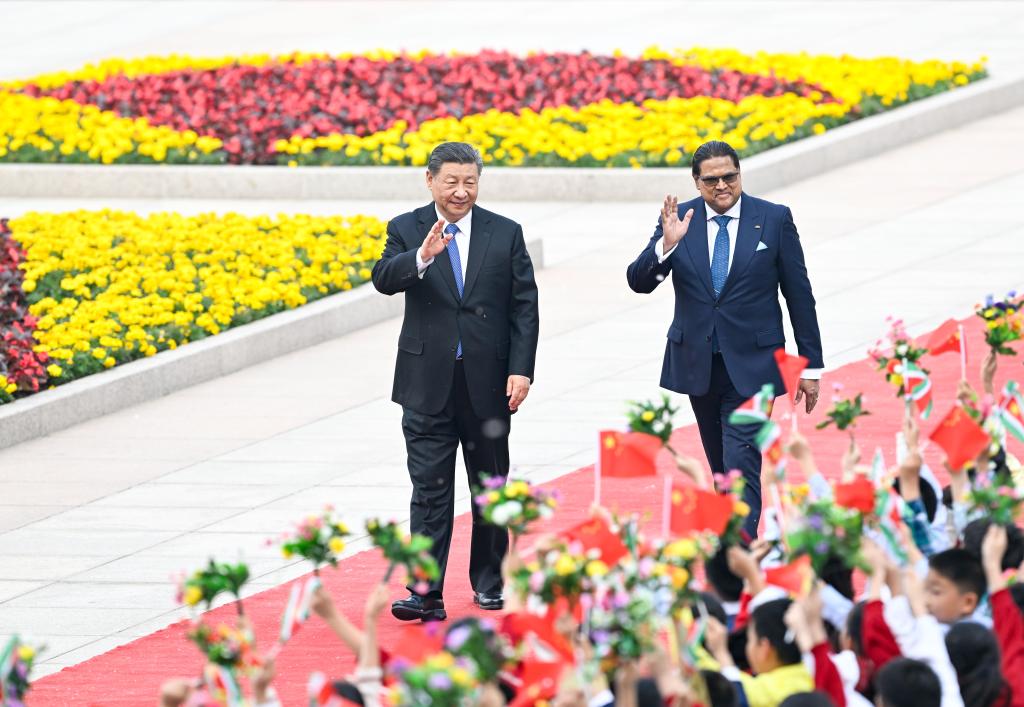
This “model” is reflected in all aspects of the relationship between the two countries, and the people of both countries have the most genuine experience.
“Entering the hearts of the people of Suriname”
Suriname is one of the first Caribbean countries to sign the “the Belt and Road” cooperation plan with China.
The Saramaka district, about an hour and a half drive from the capital city of Paramaribo, is currently experiencing a bountiful grapefruit harvest season. In the orchard of Ashwin Duki’s family, the branches droop low and the fruits are abundant. Duki and his brother are busy picking with the workers. In the past, this family even had to borrow money from family and friends to buy agricultural tools. A good life cannot be achieved without the support of Chinese agricultural technology experts.
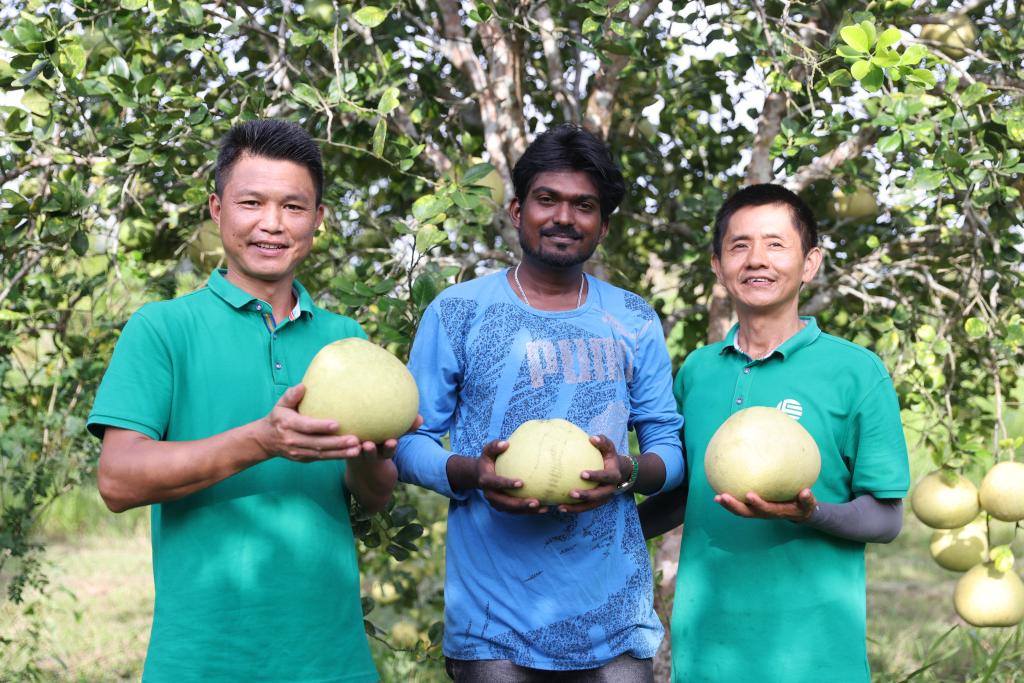
In 2022, the technical assistance project of the China Aid Suriname Agricultural Technology Cooperation Center was launched, with plans to hold 10 training courses and train more than 300 people. President Dan Duoji attended the launch ceremony specifically. In his view, China’s advanced technology has cultivated high-yield and high-quality agricultural products, and it is crucial for Suriname to engage in agricultural cooperation with China.
24-year-old Duki lives near the cooperation center and quickly becomes friends with Chinese experts. Chinese experts almost go to Du Ji’s fields every day to guide him in various aspects such as seedling cultivation and fertilizer use. He began planting crops such as chili peppers, eggplants, and watermelons, which could not only be sold in the local market but also exported to neighboring countries. He told reporters that thanks to advanced technology and high-quality seedlings brought by Chinese experts, the yield of crops grown in his family has doubled, and the annual income has doubled.
This young farmer not only knows about the “the Belt and Road” initiative proposed by China, but also believes that “such a good initiative” is closely related to himself, “can help us export agricultural products to all parts of the world”.
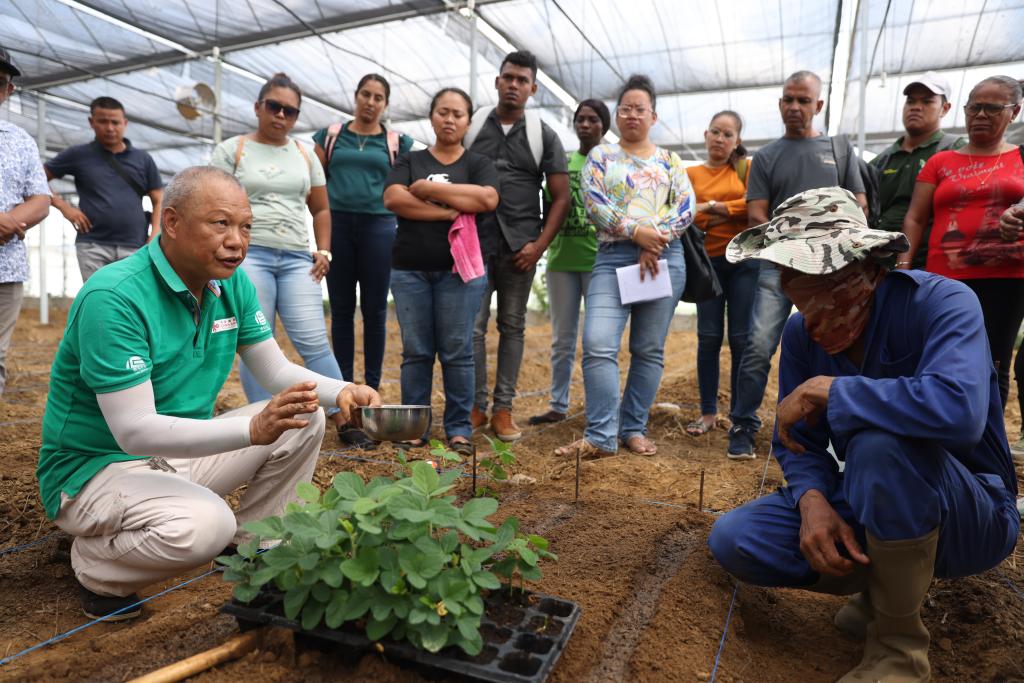
Officials from the Suriname Ministry of Agriculture, Animal Husbandry, and Fisheries, Yason Buck, told reporters that some local agricultural technicians take two and a half hours by car to the center every day to participate in training, and then bring the learned skills back to the farmers around them. They are passionate about learning Chinese technology, regardless of wind or rain. “We have collaborated quite well with Chinese agricultural experts, with the same goals and concerted efforts.”
Su Lirong, a vegetable breeding and cultivation expert from Hunan, said that the cooperation center has won the trust and love of local farmers, and many people come to seek advice with questions. Suriname government departments often organize Chinese experts to conduct research and guidance on local farms and production bases. “I feel like we have truly entered the hearts of the people of Suriname,” he said.
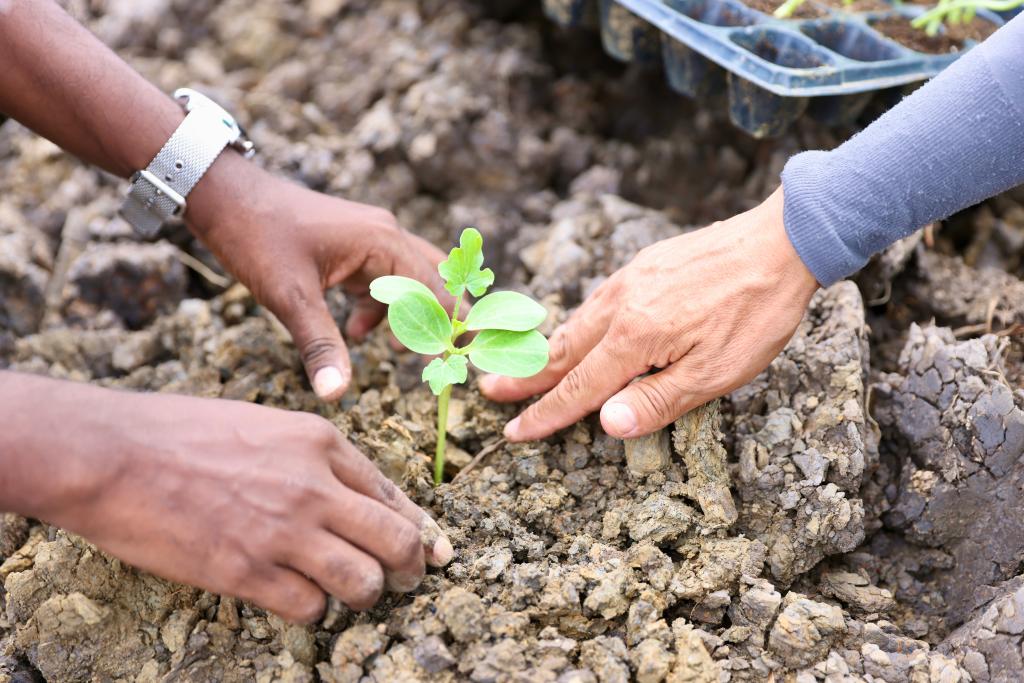
Suriname Agricultural Researcher Jane Agnat believes that China’s advanced experience has helped Suriname improve agricultural productivity and solve food security issues, and that agricultural cooperation between Suriname and China has enormous potential and bright prospects.
“All hardships are worth it”
It takes more than two hours to drive from the capital to Botopasi Village by the Suriname River, and then three hours by boat upstream. During the dry season, transportation becomes more difficult, and the water level of the Surinam River decreases, with numerous boulders and dangerous beaches. In the past, dozens of villages along the river relied solely on diesel for power generation, with only a few hours of power supply per day and frequent power outages. Villagers all hoped for stable power supply. Nowadays, China’s low-carbon energy solutions have helped them achieve their aspirations.
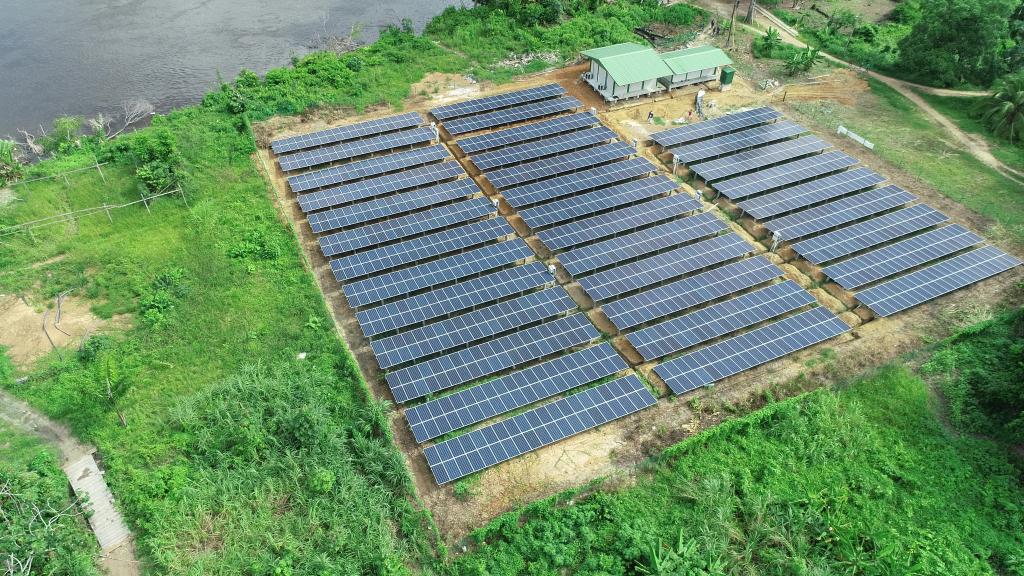
In September 2019, in response to the urgent needs of the Ministry of Natural Resources of Suriname, China Electric Power Construction Group signed a construction contract with the Soviet side. In 2020, the first microgrid photovoltaic hybrid power station was built in Huyaba Village, and the villagers used electricity 24 hours a day without interruption, greatly improving their living standards. This made Porter, a villager from nearby Botopasi village, envious. He studied in the capital city of Paramaribo for several years and was able to communicate in English. In October 2021, China Electric Power Construction Group came to Botopaxi Village to start the second phase of the project. Potter immediately stepped forward and took on the translation task. “I am willing to help Chinese companies and villagers communicate. Electricity is too important for us,” he told reporters.
The green concept contained in China’s energy plan has won the recognition of local people. Suriname is one of the countries with the highest forest coverage in the world. Porter said, “We live in the rainforest and have always lived in harmony with nature. The photovoltaic power generation technology promoted by the Chinese people now will not damage the local natural environment, which is exactly what we need.”
Xiong Zekun, a local manager of China Electric Power Construction Group, introduced that the Phase II project has a total of 5 stations serving 40 villages. He said that during the construction period, various difficulties were encountered and dangerous situations were encountered on the transportation equipment. However, for Chinese builders, when they think of the cheers of the children when the village lights were lit up and see them studying diligently under the lights, “all these hardships are worth it.”.
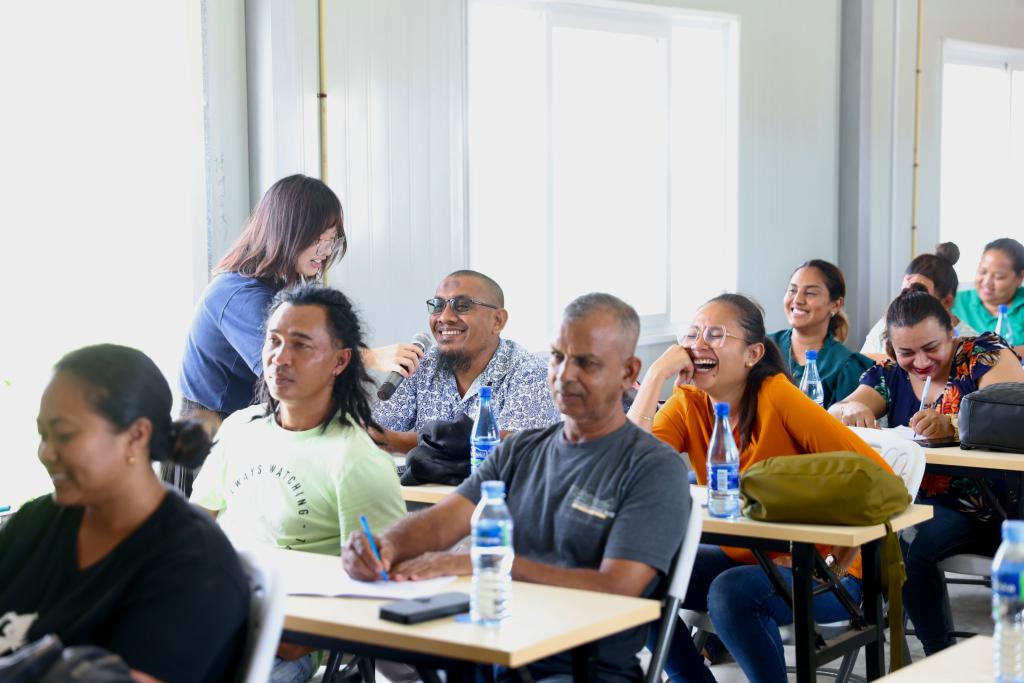
13 year old Botopasi village boy Dinio Ajaco is very hopeful about the future illuminated by Chinese technology. “With stable power supply, I can focus more on doing homework at night and even have access to fresh food in the refrigerator.” He had more long-term plans and “I hope to have the opportunity to study in China.”.
“A real, rich, and three-dimensional China”
In the Vanika district of northern Suriname, many locals give a thumbs up when it comes to the Vanika hospital built with Chinese aid.
Since its opening in February 2020, Vanica Hospital has been able to cover the medical needs of approximately 150000 local people. “Without this hospital, many local patients would find it difficult to receive timely and good treatment,” said local healthcare worker Aringie Sonia.
“The hospital has complete facilities,” Vanica Hospital nurse Marina Silvela Fonseca told reporters. “The important support provided by China has truly benefited many Surinamese people.”
“The West plunders our natural resources through so-called aid, while the Chinese people really want to see how our actual situation is and think about how we can better help us.” This is the conclusion drawn by government worker Yvonne Ksalsing through firsthand observation.
50 year old Cesarsin visited China for the first time last year, along with more than 30 representatives from Caribbean countries, to visit Beijing, Shanghai, Shandong and other places. Her visit to China for more than ten days has enriched her understanding of China. “Before leaving the airport, some Western media had already broken the stereotypical impression of China. Everything was very professional, organized, and people behaved kindly and friendly.” She said that the real, rich, and three-dimensional China she saw during her visit “deeply shocked more than 30 representatives in the same industry, just like me.”.
When visiting the countryside, she asked the villagers who came to receive her a question: “What is the secret to such good rural development in China?” “Love the country, love the family.” The answer given by the villagers touched her deeply.
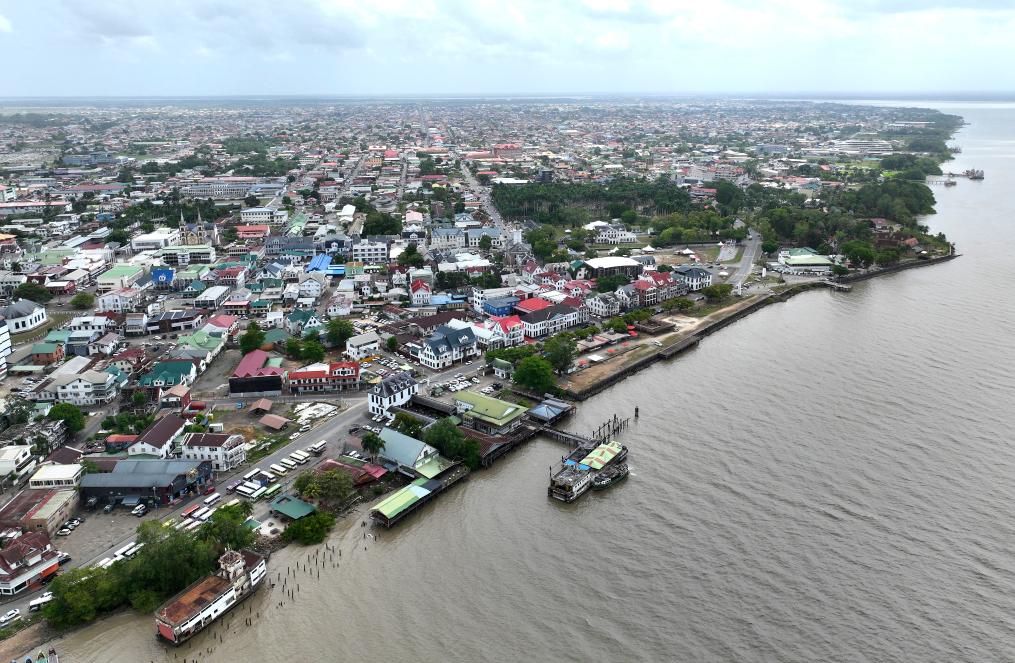
From high-speed rail and hospital operations in China to park fitness, K ö sselsen wants to bring back all the construction experiences he has observed to his country. “China’s development is not only reflected in high-rise buildings and high technology, but also in people’s spiritual outlook,” said Kesalsin. “I hope more Surinamese can go to China to see how they have achieved it.”
Planner: Ni Siyi and Jiang Yan
Producer: Deng Yushan, Han Mo, Zhao Kai
Coordinator: Yan Junyan, Sun Hao
Reporter: He Bing, Wang Zhiying, Zhao Yan, Wang Linyuan, Wang Yachen, Li Mengxin
Editor: Zhang Dailei, Qiao Jihong, Chen Shan, Xie Dongfeng, Wang Fengfeng, Cheng Yuyu
Photography: Shen Hong, Li Mengxin, Wang Linyuan
Produced by the International Department of Xinhua News Agency
